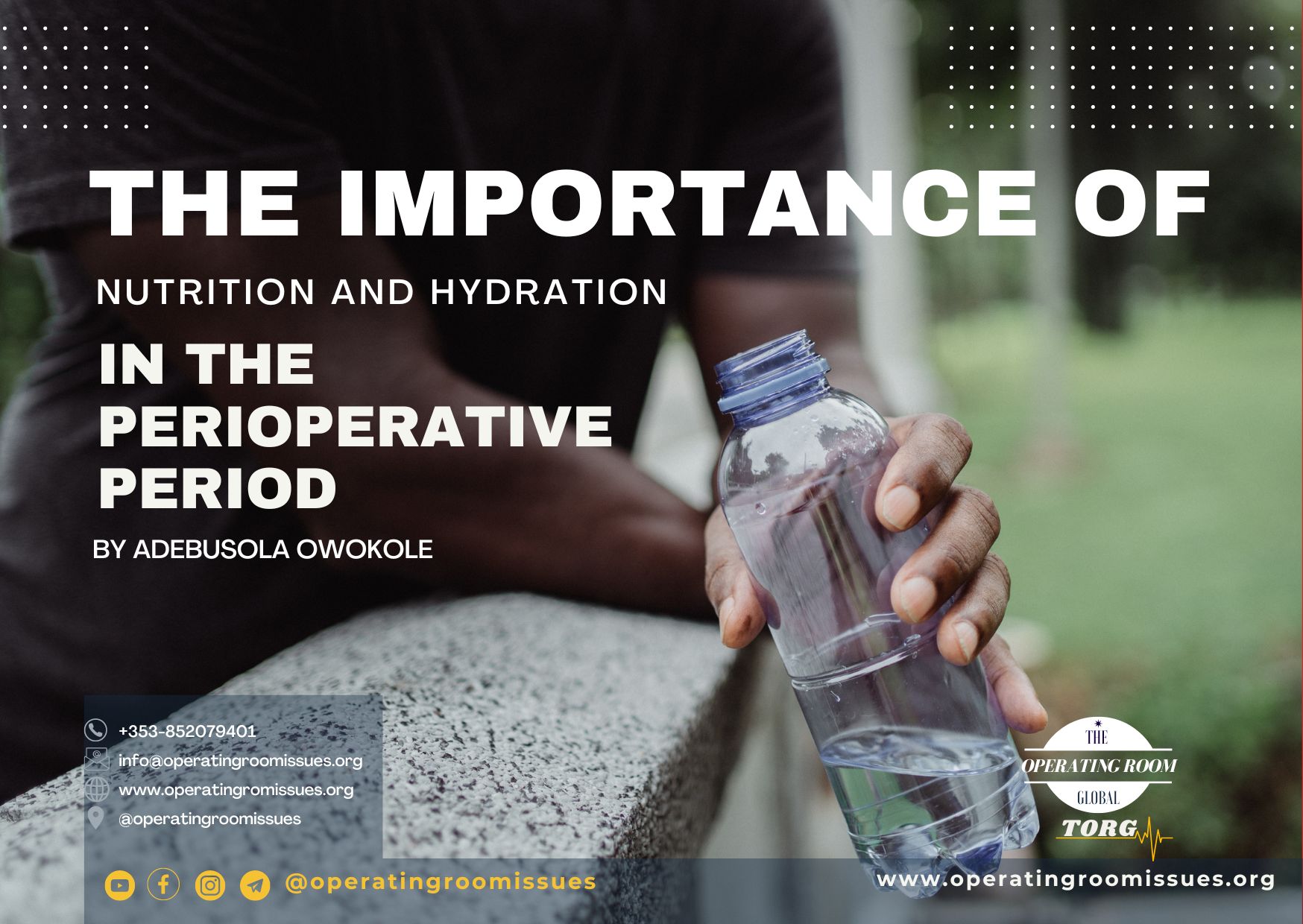By Adebusola Owokole (TORG Founder/President)
Nutrition and hydration play a critical role in the perioperative period, which is the time before, during, and after surgery. Proper nutrition and hydration can help reduce the risk of complications, improve wound healing, and promote a faster recovery. In this blog post, we will discuss the importance of nutrition and hydration in the perioperative period.
Importance of Nutrition
Wound Healing: Adequate nutrition is essential for proper wound healing after surgery. Patients who are malnourished or have poor nutritional status may experience delayed wound healing and increased risk of infections.
Immune Function: Proper nutrition is important for maintaining a healthy immune system. Patients who are malnourished or have poor nutritional status may have a weakened immune system, which can increase the risk of infections.
Energy and Strength: Surgery can be physically demanding and can cause the body to use up energy stores. Proper nutrition can help provide the body with the energy it needs to recover from surgery and regain strength.
Anaesthesia and Medications: Some medications used during surgery can affect a patient’s appetite and ability to eat. Proper nutrition prior to surgery can help ensure that the patient has adequate energy stores to support the body during surgery and recovery.
Importance of Hydration
Organ Function: Proper hydration is important for maintaining healthy organ function. Dehydration can cause the kidneys and other organs to work less efficiently, which can increase the risk of complications.
Medications: Some medications used during surgery can affect a patient’s hydration levels. Proper hydration prior to surgery can help ensure that the patient is well-hydrated and better able to tolerate these medications.
Recovery: Dehydration can prolong the recovery period and increase the risk of complications. Proper hydration can help speed up the recovery process and reduce the risk of complications.
Anaesthesia: Proper hydration can help prevent complications during anaesthesia, such as low blood pressure.
Conclusion
Proper nutrition and hydration are essential for promoting a successful recovery after surgery. Healthcare providers should assess patients’ nutritional status and hydration levels prior to surgery and provide appropriate interventions as needed. Patients should be encouraged to maintain a healthy diet and stay well-hydrated prior to surgery, and to continue to prioritize nutrition and hydration during the recovery period. By working together, healthcare providers and patients can help ensure a smoother recovery and reduce the risk of complications.

